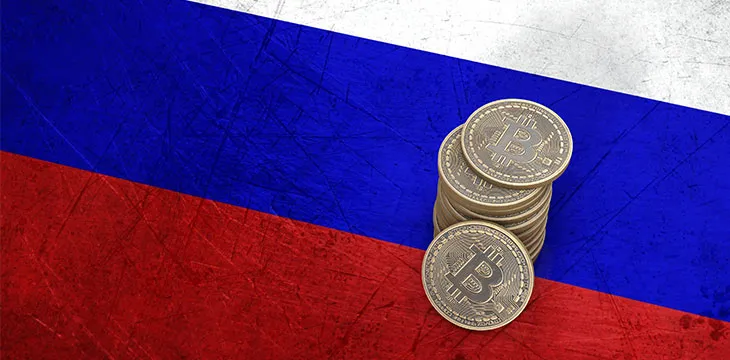|
Getting your Trinity Audio player ready...
|
As is the case in most developed countries, Russia currently doesn’t offer any framework to govern cryptocurrencies and blockchain. The rapid increase of companies entering the space is now forcing regulators to try and catch up, and two bills in the works could help provide some legal guidance. Due to the impending adoption of the bills, Russian companies looking to get in on the crypto market should probably wait to see how the bills are received by the government.
One bill deals with financial assets. It will provide clearer definitions for both mining and digital financial assets, which includes both cryptocurrencies and tokens. The bill stipulates that asset owners will be entitled to only conduct one type of transaction, exchanging crypto for either rubles or foreign currency.
There is already legal framework in the country that guides civil rights objects but which doesn’t cover cryptocurrencies. Without clearer definitions, market investors are divided into two camps—those that view it as a surrogate, which is forbidden by law, and those that feel that it’s in a grey area that, in the absence of legal framework, allow for cryptocurrency trading.
Currently, regulators and lawyers are tasked with the responsibility of determining the legal definition of cryptocurrency for purposes such as banking or accounting. If the bill passes the State Duma, the legislative body of Russia, it would help to clarify somewhat the status of cryptocurrency, but there would still remain questions due to the wording in several of the country’s core laws, including its Civil Code.
The other bill focuses on crowdfunding as an alternative means of investment. It would provide a definition of crowdfunding and establish requirements for crowdfunding platforms. Additionally, it would introduce two new concepts, qualified and unqualified investors. The bill further stipulates that individuals would not be allowed to invest more than about $324,000 in a single project. Entrepreneurs and recognized investors would have a single-project investment cap of $1.62 million. Other legal entities would have no limit.
The crowdfunding bill goes one step further and defines distributed ledger. All crowdfunding platforms would be required to register in blockchain the same way that startups must legally register with the tax authority on its unified registry.
The Duma hopes to adopt the bills as soon as possible. The bill on digital finance assets was just introduced in March, which doesn’t leave much time for it to be reviewed. Both bills could become law as early as June 1 of this year.

 08-31-2025
08-31-2025 





